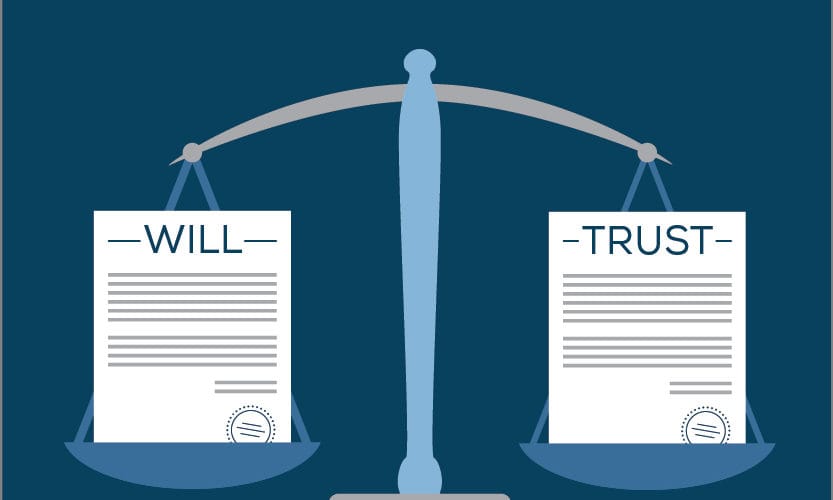By Mani Ojeah

Writing a will isn’t the most pleasant of tasks. After all, by doing so you’re not only acknowledging your own inevitable demise, but actively planning for it. That might explain why so many adults avoid this cornerstone of estate planning. According to a recent survey, 8 out of 10 Nigerians over the age of 45 don’t have a will and 7 out of 10 will not make one before they pass.
Creating a will is one of the most critical things you can do for your loved ones. Putting your wishes on paper helps your heirs avoid unnecessary hassles, and you gain the peace of mind knowing that a life’s worth of possessions will end up in the right hands.
The purpose of writing this report is to give a simple, concise and straight to the point justification of the fundamental requirements for any person who is interested in writing or planning to write a Will. This report also aims to correct the opinion of many that have come to believe with absolute certainty, that Wills are superfluous, ignorable and are indeed death pronouncements. This report will give the reader a reinvigorated perspective on the significance of writing and keeping a Will.
WHAT IS A WILL?
A Will or Testament is a legal document by which a person, the testator, expresses their wishes as to how their property is to be distributed at death, and names one or more persons called the executor, to manage the estate until its final distribution. In a layman’s language, it is simply a legal document in which you, the testator, declare who will manage your estate after you die. It helps a person determine what happens to his properties/estate after his death; it also helps him to give any instructions he may wish to be carried out if he is no longer alive. Apart from deciding who gets your assets, a Will can also serve to declare who you wish to become the guardian for any minor children or dependents.
The most important things to provide for in your will are who will be your executors, who will be the beneficiaries of your assets, and in cases where there are minors – who the guardian(s) of the minors will be.
In Nigeria, a will could either be oral or written, oral wills being wills made by word of mouth are recognised under our customary or indigenous laws while written wills are governed by law and statutes. An oral will, which is also called a nuncupative or deathbed will, is a will that is spoken to witnesses, but not written. Such wills are valid only in a few states and only in very limited and unusual circumstances. In this report, we will focus on written wills.

THE VALIDITY OF A WILL
In preparing a will, a testator (person making his will) must have capacity to do so, meaning he must be of legal age (above 18yrs) and have mental capacity (he must be of sound mind). Furthermore, for a will to be valid it must be;
- It must be made voluntarily
- It must be in writing (either typed or hand written)
- It must be signed by the testator
- The signature of the testator must be acknowledged by at least 2 witnesses (it is advised that a beneficiary to a will must not act as a witness to the will).
- The testator must be of sound mind
- It must name the beneficiary or beneficiaries
- It must identify the property.
In the probate courts today, there are many parties in legal battles contesting the provisions of a will and the court is likely to set aside a will if there is conclusive proof that the testator did not have the mental capacity to understand what he was doing at the time the will was made or if the testator was unduly influenced to dispose of his properties as he did in the will.
A person who dies without making a will is described as a person who ‘died intestate’, and in such situations, certain members of the family shall apply to the probate registry of the High Court to be granted letters of administration of the deceased’s estate.
WHO IS AN EXECUTOR?
An executor is someone named in a will, or appointed by the court, and who is given the legal responsibility to take care of a deceased person’s remaining financial obligations. This means taking care of everything from disposing of property to paying bills and taxes. The executor possess the power to give the beneficiaries whatever is left in the estate after the debts, expenses, claims and taxes have been paid. The executor has certain legal and financial powers to manage the estate, including the power to keep or sell property in the estate, to invest cash, and to borrow money.
The executor cannot see the Will before the death of the testator as the Wills do not become public records until after the will is filed with the probate court. Thus, executors have no right to read a will before the testator’s death. Some people opt to write sealed wills, and give only one sealed copy to a lawyer, accountant or other person for safekeeping.
In a probate action, an executor has a duty to follow the directives set out in the will. If the executor does not the beneficiaries can petition the court to either require the executor to carry out his duty or to remove the executor. This applies only if the is an actual probate proceeding.
A properly drafted will has a number of advantages including comfort and ease of mind that your affairs will be properly taken care of after your death. Some benefits of making a will are:
- Make your wishes known:
Without a valid Will, the distribution of your assets will be according to the rules of intestacy – not according to your wishes.
- Provide for those you choose:
If you are in a relationship and are not married or do not have a registered civil partnership, you cannot inherit your spouse’s or partner’s estate unless he or she had a valid Will in place. If one person in such a relationship dies without a Will, this can create serious financial hardship for the surviving partner.
- Protect your children:
If you have a child or children, a valid Will is necessary to make arrangements for te children should the parents die, It is extremely important to have a Will in place if the children are under 18 and would need someone to look after their inheritance or to have a guardian appointed for them.
- Reduce inheritance tax:
Careful drafting of your Will may reduce the amount of inheritance tax payable by your beneficiaries after your death.
- Protect your estate from being contested:
There has been a significant rise in claims being made against the estates of people who have died. The Interstate Succession under the Customary Law Act Nigeria allows certain individuals to make a claim for provision from a person’s estate, even if that person never intended to leave that individual any money or assets. By seeking legal advice and making a Will you could significantly reduce the likelihood of a successful claim being made.
Making a Will need not be time consuming or costly but it is vitally important to ensure your personal assets are distributed to those you love.
SUCCESSION UNDER CUSTOMARY LAW
Customary Law embodies customs as practiced by the people which they regard as binding on them. It is any system of law different from Common Law and a Law enacted by legislation, but which is enforceable and binding within Nigeria as between the parties subject to its way. Customary succession therefore, is succession that is not in accordance with the common law or statute, but in accordance with the traditions, customs and practices of the local people which are enforceable and binding between the parties which are subject to it. Customary succession therefore, being succession that is according to customs, beliefs and traditions of the people, is mainly intestate (without a Will).
The patterns of intestate inheritance and succession under Customary Law in Nigeria have almost as many variations as there are ethnic groups in the country. In fact it could be said that the law of succession and inheritance reflects Nigeria’s plural legal system. The resultant effect of this state of affairs therefore is the absence of a uniformity of rules of succession under Customary Law.
The question that therefore comes to mind flowing from the above realization is:
How does one determine the correct law to apply in the case of intestate succession under Customary Law?
Essentially, the deceased’s Customary Law is the appropriate law to be applied in such situation. The law, that is, the deceased’s Customary Law will be applicable even though the deceased died outside his ethnic locality or leaves properties outside his hometown. It is important to note that while it is true that with respect to land matters generally, the Customary Law of the place where the land is situate (lex situs) is applicable, with respect to inheritance, the appropriate Customary Law is the Customary Law of the deceased.
The general principle of law is that a person carries his Customary Law with him, hence regardless of the Customary Law of the place of his residence or abode, his personal law shall prevail. However, our customary jurisprudence arrived at a departure from this position when in the case of Adeniyi Oluwo & Ors v. Olabowale Oluwo & Ors, the Supreme Court was invited to determine whether a man can give up his own personal law and acquire the Customary Law of his place of abode. The Supreme Court held that, the law applicable for the distribution of a deceased’s estate on intestacy is his preferred personal law and not his personal law of origin.
The legal effect of this judgment therefore is that any Nigerian can change his personal Customary Law of origin in preference for another one which he acquires as a result of acculturation/assimilation.
THE RIGHTS OF SPOUSES UNDER THE ACT AND CUSTOMARY LAW
It has been established that any Nigerian may make a Will whether married under the Act or under Customary or Islamic Law subject however, to restrictions imposed by law. Where the marriage was celebrated under the Act, both husband and wife may inherit each others estate on intestacy. Where however, the marriage was contracted under the Customary Law, a widow, on the intestacy of her husband, is completely disinherited despite any contributions to the man’s success. No system confers on such a widow any beneficial rights of inheritance safe of course for benefits she may enjoy through her children’s right. Such a widow is infact often times considered as an asset for inheritance.
While it is imperative to note that customary succession is an important tool for resolution of disputes which inevitably arise from issues of inheritance in Nigeria, I will not shy away from the fact that some of these customary practices are indeed not in tune with contemporary practices and the judiciary has played in huge role in nullifying some of these discriminatory practices.
WHAT IS A CODICIL?
This is an amendment to a will. It is a testamentary document similar but not necessarily identical to a will. It can be used to add or delete provisions or substitute a new provision for one that’s already in the will. A codicil must be signed in the same way as your original will: with witnesses, intent, and mental capacity. In some jurisdictions, it may serve to amend, rather than replace, a previously executed will. In others, it may serve as an alternative to a will.
WHO CAN BE A WITNESS?
As part of the Wills Act, witnesses are necessary to ensure the document becomes official and legally binding. Without witnesses, your Will is simply an ‘official looking’ document. Selecting your witnesses is an important step in the process. Most states require that witnesses be “disinterested”. In other words, this is someone that does not stand to inherit under the terms of the will. A beneficiary’s spouse may also be disqualified from serving as a witness. If a beneficiary does serve as a witness, the will’s gift to that person could be declared void by a court, but the rest of the will would remain in effect. Each witness must be a legal adult, which usually means 18 or over. The lawyer who drew up a will can also serve as a witness when the will is signed, even if he or she is named as the executor and will profit later from charging fees for the executor’s work.
The minimum criteria are:
- Family members
- Your husband/wife or civil partner
- Any of your beneficiaries, who are the people you intend
to inherit from your Estate
- The husband/wife or civil partner of a beneficiary in your
Will
- Anyone under the age of 18 years of age
- Anyone who is blind or partially sighted
- Anyone who does not have sufficient mental capacity to
understand what they are witnessing
Finally, keep in mind you need two witnesses present. Ensure you plan and schedule a time for all parties to witness and sign your Will. Witnesses should sign the Will with their signature as well as their full name in print lettering, address, and occupation to ensure easy identification. Remember to date your Will to ensure the most current version of your Will is executed.
Writing a Will is a prudent exercise and a good way to ensure your loved ones are protected. The correct witnesses go even further to protect this important document.
SINGING PROCEDURE
The will should be signed in the presence of your two witnesses and in the spaces provided, you should:
1 date the document (eg ‘the 15th day of January 2019’);
2 sign your name using your ‘usual’ signature where indicated whilst your witnesses watch;
3 ask your two witnesses to add, in your presence, their ‘usual’ signatures where indicated, asking them to print their names, addresses and occupations clearly for identification purposes.
ALTERATIONS BEFORE SIGNING
Wills can be altered before signing, but the testator, and both witnesses, must sign or initial in the margin or near the alteration. If this is not done, the court will assume that the alteration was made after the will was signed and the alteration will not be effective unless the court waives the formalities. Once a will has been signed there can be no alteration, either by crossing out or writing in new clauses, unless the new clauses are executed in the same manner as a will.
WHERE IS THE WILL KEPT
After writing it, you need to make sure you keep it in a safe place where your executors (and no-one else) can find it, because the executor will need the original will to handle your affairs efficiently when they need it.
It is pertinent to place your will where it’s safe from theft, fire, or other damage. It is also important to ensure that those who will administer and proof the will finds it after testator’s death. The Will can be kept in the following places:
- PERSONAL SAFE DEPOSIT BOX.
A Will can be kept personally by the testator himself. This can be done through various means. It is advisable to keep your will where none of the beneficiaries or third parties can see it. The content of the will is supposed to be made known after the death of the testator.
Your home is probably the easiest place for your executors to find your will since it will probably be the first place they look if you haven’t told them otherwise.
A safe-deposit box in your home is one possibility, although it may be difficult for your personal representative to access your safe-deposit box after your death. The will is of no use if after the death of the testator , no one can have access on how to open the box. So it is expedient to grant access to your personal representative, so that in the event of death, they can gain access to the Will.
- AT THE PROBATE REGISTRY.
Storage at the probate registry is one of the options of keeping a will in safe custody. This is the best place to keep a will. Keeping the will within the jurisdiction the will was made is the best alternative. The procedures which a testator must comply with before his will is accepted and kept at the probate registry can also be an advantage and also operate in favour of the Will, should the validity of the contents of the Will be contested by anyone on the ground that the testator lacked a sound mind when making the Will.
It’s very crucial that the Will submitted for Probate is the latest Will. This will ensure that the correct person is applying to administer the Estate.
- BANKS
Banks have vaults for safekeeping key items belonging to customers, including legal documents such as property deeds, certificates, wills etc.
A smart way of keeping some of your valuable assets is storing them in the safedeposit box of your bank. Banks have safe deposit boxes, which they can lease out to customers annually, but the only problem is that your executors will have no right to access your stored documents until they have a Grant of Probate.
4.WITH A TRUSTED FRIEND OR RELATION.
A will can be kept with a trusted friend or relation. The most important thing is that they make it available upon the death of the testator. It is advisable to keep it in the possession of a much younger trusted friend or relation. This is because there is a strong presumption that the older will predecease the younger.
- A COPY LEFT WITH THE SOLICITOR WHO PREPARED THE WILL.
A copy of the will can also be left with the solicitor who prepared it.
Solicitors often offer Will storage without charging anything. It is often believed that the number of Will in storage has a big influence on the value of a solicitors practice. Be that as it may, the solicitor plays a huge role on the storage of a will.
- EXECUTOR/PERSONAL REPRESENTATIVE APPOINTED IN THE WILL.
Some people also give a copy to their personal representative. Usually the reading of a will doesn’t happen until after a funeral. So you’d want your personal representative to have a copy on hand, to be able to carry out your funeral wishes.
CONCLUSION
It is significant to say that making a will is very important and should be embraced by all, to protect the interest of loved ones and ensure one’s assets are properly managed. It is neither a curse nor a superstitious belief, as many believe but a means of protection and administartion. Anyone can write his/her will himself or herself but it is advisable to employ the service of a lawyer for a proper guidance.







Add your first comment to this post